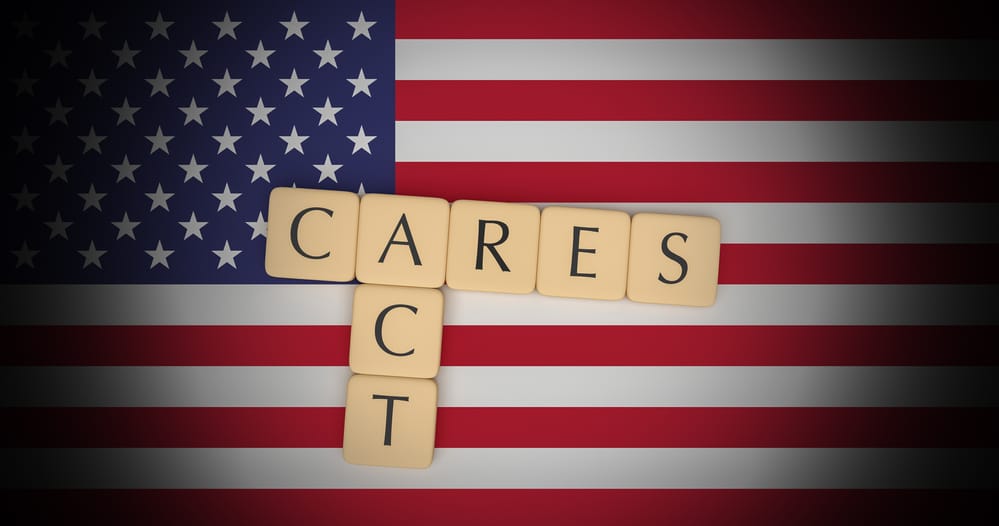When will Educators Receive COVID Relief Funding?

This blog post is written by AACTE consultant Jane West and is intended to provide updated information. The views expressed in this post do not necessarily reflect the views of AACTE.
Implementation of the $2 Trillion CARES Act: Where Do We Stand?
It’s hard to keep track of the swirl of information about federal efforts to address the pandemic in the education space. Here is my best shot at a high-level summary of where things stand:
- It’s been three weeks since the $2 trillion third package of funding (COVID-3 or the CARES Act) became law
- The bill includes the following and distribution to date is as noted:
- $13.5 billion for elementary and secondary education
- No announced process or timeline for distribution yet
- $14.25 billion for higher education
- $6.3 billion is being distributed to IHE’s for students who need emergency financial aid and have expenses related to the pandemic
- $3 billion for a Governor’s Emergency Education Relief Fund
- fund now available for distribution
- $13.5 billion for elementary and secondary education
The $3 billion Governor’s Emergency Education Relief Fund is being distributed based on the state’s student population. Allocations range from $6.5 million to Alaska and $355 million to California. While $3 billion is a lot of money, when you boil it down to a per pupil expenditure it becomes pretty puny, for example in Alaska it is $33 per student and in Pennsylvania $57 per student.
States may get their funding by signing a certification and agreement document assuring the funds will be used to
- Provide emergency support through grants to local education agencies
- Provide emergency support through grants to higher education institutions
- Provide support to any other education-related entity that the governor deems essential for carrying out educational services to students
The question of waivers to IDEA continues to heat up. The CARES Act requires the Secretary of Education to submit to Congress a report by April 26 outlining the waivers to IDEA that she believes are necessary during the pandemic. Over 1000 special education and related organizations submitted a letter opposing any IDEA waivers. The Consortium for Citizens with Disabilities’ Education Task Force sponsored a briefing for congressional staff this week providing an overview of IDEA and a rationale for why waivers are not needed. The National Center on Learning Disabilities has distributed an advocacy tool kit urging waiver opposition. Many other education organizations support IDEA waivers noting that flexibility is needed during the pandemic. Among these are two special education administrator organizations.
As a postscript, I want to note two rarely acknowledged provisions in the CARES Act which affect teachers and student financial aid. These are modifications to TEACH grants and the loan forgiveness program for teachers. They are as follows:
- TEACH grants: the Secretary of Education may excuse TEACH recipients from fulfilling a portion of their teaching service obligation due to the emergency.
- Teacher Loan Forgiveness: the Secretary may waive requirements that qualifying teaching service be completed in consecutive years if the service is interrupted due to the emergency and following the interruption the borrower resumes teaching and completes five years of service, including the teaching performed before, during and after the emergency.
The ever amazing Congressional Research Service has posted a comprehensive compendium or resources about the pandemic.
Sec. DeVos Proposes Vouchers for Professional Development
This week, U.S. Department of Education Sec. Betsy DeVos issued a priority to fund vouchers for professional development for teachers. The press release notes that this initiative would empower teacher to select and access the professional development which is relevant to their personal needs or career goals “instead of having one-size-fits all programming dictated to them by the state or local education agency.” The release further notes “If we can trust teachers with our children each day, we should trust them to select the right continuing education courses.” The program would be funded through the Education and Innovation and Research program authorized under ESSA and created to explore ways to improve academic achievement for high need students. The proposed priority is open for public comments until May 13. Multiple education organizations have opposed this concept and will likely continue to weigh in.
New Resources for Educators
- The National Council on Teacher Quality offers an analysis of how states are modifying student teaching and teacher certification requirements in response to the pandemic.
- Inside Higher Education offers a story, Risk without reward, reporting on a study from the National Academy of Sciences and finding that “underrepresented minorities outperform majority peers in terms of novel research, but they don’t reap the same rewards:”
For more information, read the full Washington Update on my website. Follow me on Twitter @janewestdc.
Tags: elementary education, federal issues, funding, higher education, secondary education, special education






